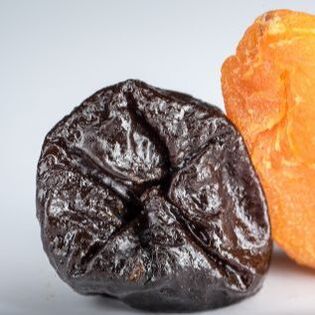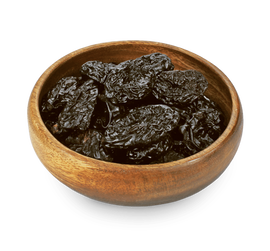|
Eating healthier is important for several reasons.
1 Comment
 Photo by Needpix.com Photo by Needpix.com Prunes, also known as dried plums, are a nutrient-dense food that is rich in vitamins, minerals, and fiber. They are an excellent source of antioxidants, which can help protect the body from damage caused by harmful molecules known as free radicals. This makes prunes a great food to consume to help boost overall health and well-being. Prunes are also an excellent source of fiber, which is important for maintaining digestive health and regularity. They help to promote the growth of healthy gut bacteria, which can improve immunity and overall health. Additionally, consuming prunes can help regulate blood sugar levels, which is important for those with diabetes or insulin resistance. One specific benefit of prunes is their potential to support bone health. They are a particularly rich source of vitamin K, which plays a key role in bone health and helps to prevent osteoporosis. Additionally, they are high in other nutrients such as calcium, magnesium, and potassium, which can also aid in bone health.  Photo by Glenda on CleanPNG.com Photo by Glenda on CleanPNG.com In addition to their nutritional benefits, prunes have also been found to have potential health benefits for cardiovascular health. Research suggests that consuming prunes can help to reduce LDL cholesterol levels, which is important for reducing the risk of heart disease. Moreover, prunes are also high in potassium, which helps to regulate blood pressure levels and is another key factor in maintaining cardiovascular health. Overall, prunes are an incredibly nutritious food that can offer many potential health benefits. They are easy to incorporate into diets and can be eaten as a snack or added to recipes. For those interested in maintaining or improving their overall health and well-being, prunes are a great food to consider incorporating into their diet.
 Photo by Olga Kozachenko on Unsplash.com Photo by Olga Kozachenko on Unsplash.com Ultra-processed foods, as the name suggests, are foods that have undergone a high degree of processing and contain a large number of added ingredients. They are often high in calories, unhealthy fats, added sugars, and sodium. Several studies have shown that a diet high in ultra-processed foods can increase the risk of obesity, type 2 diabetes, cardiovascular disease, and other health problems. One of the reasons for this is that ultra-processed foods often contain high amounts of added sugar, which can lead to spikes in blood glucose levels and contribute to the development of insulin resistance and type 2 diabetes. Additionally, many ultra-processed foods are high in unhealthy fats, which can increase the risk of heart disease and other health problems. Another issue with ultra-processed foods is that they tend to be low in fiber and nutrients. Consumption of these foods can lead to a lack of essential vitamins and minerals needed for optimal health. This is a significant problem, as a large proportion of the population relies on ultra-processed foods as a major source of their daily caloric intake.  Photo by Needpix.com Photo by Needpix.com Some studies suggest that the processing itself may contribute to the negative health effects of ultra-processed foods. For example, the use of high heat and pressure in the manufacturing process can lead to the development of harmful by-products such as acrylamide, which can increase the risk of cancer. It is important to limit intake of ultra-processed foods in order to maintain optimal health. A diet that is high in whole foods, such as fruits, vegetables, lean proteins, and whole grains, is associated with a reduced risk of chronic diseases and should be prioritized. Education and awareness campaigns around the negative impacts of ultra-processed foods could assist in reducing consumption of these products and promote a healthier lifestyle.
Jacquelyn Cafasso writes for Healthline Nutrition to help us understand how honey wins out:
But both honey and agave nectar are caloric sweeteners and offer little added nutritional value. Honey is better than agave nectar because it is:
Read Cafasso's article, in its entirety, on Healthline's website.
The National Institutes of Health's Office of Dietary Supplements has a bit to say about vitamin A too. Check out their Vitamin A and Carotenoids Fact Sheet for Consumers.
Kids like snacks and you can get them to love healthy snacks!
Let's put those ripening berries to work! |
Food & Nutrition
What we eat ultimately provides fuel for life. Here we strive to share information that you may find helpful or beneficial on your journey to living a more healthy life. Archives
July 2023
Categories
All
|








 RSS Feed
RSS Feed
